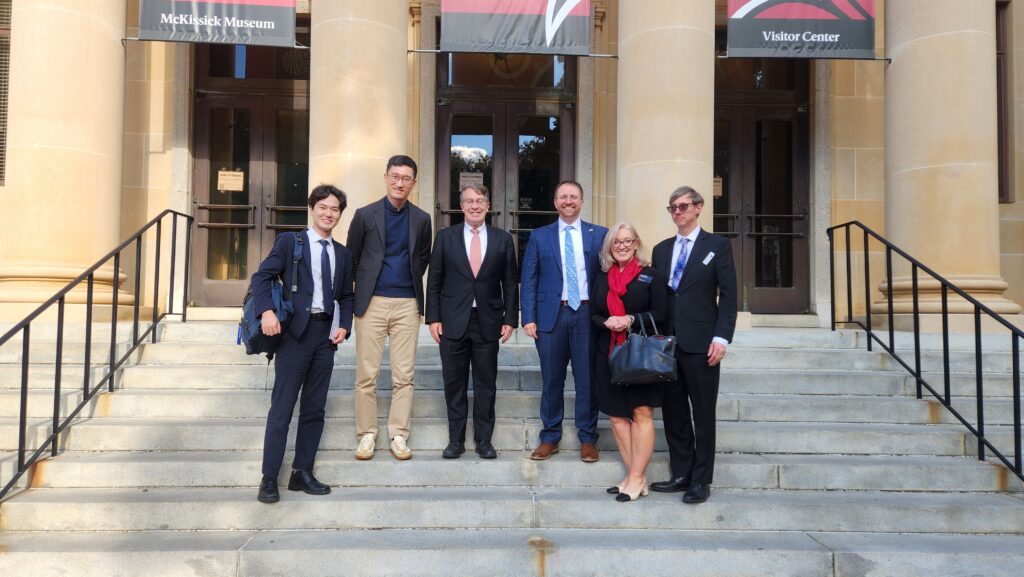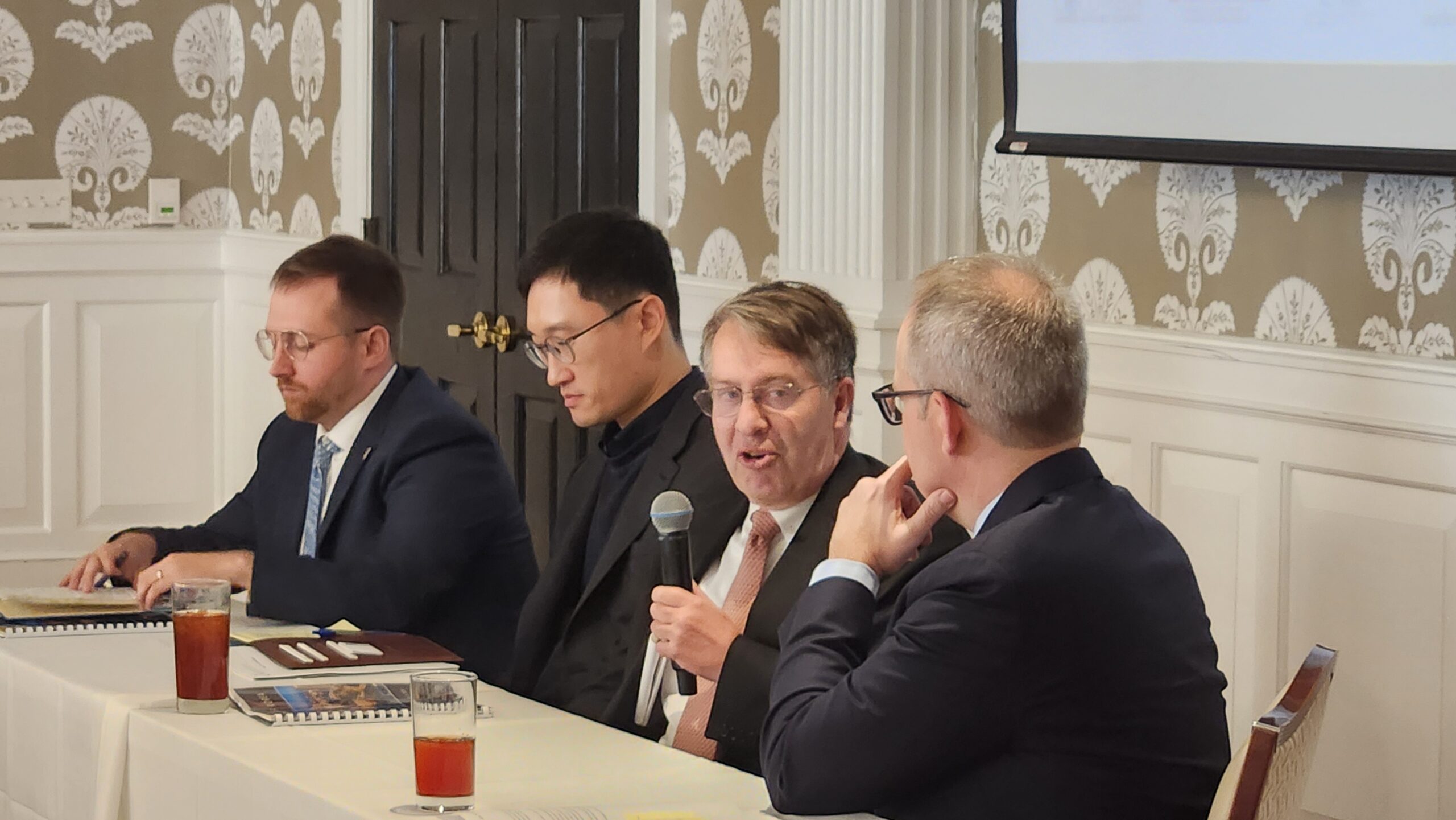The Peninsula
Future of Korea in Columbia, South Carolina

From October 16 to October 17, 2024, the Korea Economic Institute of America (KEI) visited Columbia, South Carolina, as a part of its long-running Future of Korea program. The Columbia World Affairs Council hosted a delegation consisting of KEI President and CEO Scott Snyder, KEI Program Officer Andy Hong, Economic Officer Evan Fowler from the US Department of State’s Office of Korean and Mongolian Affairs, and First Secretary Wonwoo Chung from the Republic of Korea’s Embassy in Washington. The delegation participated in a two-day program involving business leaders, community members, students, and state and local government officials.

Upon arrival, the delegation was welcomed with an informative meeting with South Carolina’s Secretary of Commerce Harry M. Lightsey. The conversation spanned a wide array of topics related to South Carolina’s comparative industrial strengths, focusing on defense, shipbuilding, auto manufacturing, and its position as the “buckle of the battery belt.” South Carolina’s geography along the Atlantic Ocean presents opportunities for the state to participate in shipbuilding projects located in the mid-Atlantic and is a major port of entry for the supply of goods throughout the Southeastern United States.
South Carolina is looking to both participate in energy transition-related opportunities from preexisting investments in the automobile sector and take advantage of “spillover” opportunities from Korean investments along its border with Georgia.
Particularly interesting was South Carolina’s long history and continued involvement with civil nuclear energy and small modular reactors. The focus on nuclear energy is part of a broader thrust in Columbia to make South Carolina a leader in energy resilience. In 2023, the federal government designated the South Carolina Nexus for Advanced Resilient Energy (SC NEXUS) as a Regional Technology and Innovation Hub. As recently as July 2024, South Carolina was awarded $45 million to advance grid resilience technologies. In tandem with efforts to bring a battery recycling center to South Carolina—which Secretary Lightsey remarked would be equivalent to opening a lithium mine in the state—it is clear that South Carolina is positioning itself to be a national leader in energy.

The delegation then participated in its main public event at the Palmetto Forum, moderated by Dr. Carl Dahlman, director of the University of South Carolina’s Walker Institute of International and Area Studies. The Walker Institute itself is a channel marker in the history of US-Korea relations as a storied institution for Korean studies that carries the name of the longest-serving US Ambassador to South Korea (1981-1986) and Columbia’s native son, Ambassador Richard “Dixie” Walker. The event was well attended, and the audience had insightful questions on the upcoming US presidential election, people-to-people engagement between the United States and South Korea, and the prospects for Korean reunification.

The delegation also met with students at the University of South Carolina’s Darla Moore School of Business. There, the delegation spoke to students about career options in foreign policy and opportunities for young people hoping to enter the field.
Following official engagements for the day, KEI’s Snyder and Hong had the opportunity to attend a public event co-hosted by Parker Poe and the German American Chamber of Commerce that discussed the business and legal implications of the presidential election. The main guest speaker, Minister Jean P. Froehly from the German Embassy in Washington, raised interesting points regarding the election that suggested parallels between the view from Berlin and the view from Seoul. Both countries are treaty-bound allies of the United States and export-oriented markets with significant investments in the United States.

The following morning, the delegation met with a group of business and commercial leaders interested in Korean investment and partnership. The conversation indicated a strong alignment between South Carolina’s public and private sectors regarding shared interest in greater cooperation with South Korea in sectors like civil nuclear power and shipbuilding.
Scott Snyder is President & CEO at the Korea Economic Institute of America (KEI). Andy Hong is Program Officer at KEI. The views expressed are the authors’ alone.
KEI is registered under the FARA as an agent of the Korea Institute for International Economic Policy, a public corporation established by the government of the Republic of Korea. Additional information is available at the Department of Justice, Washington, D.C.
